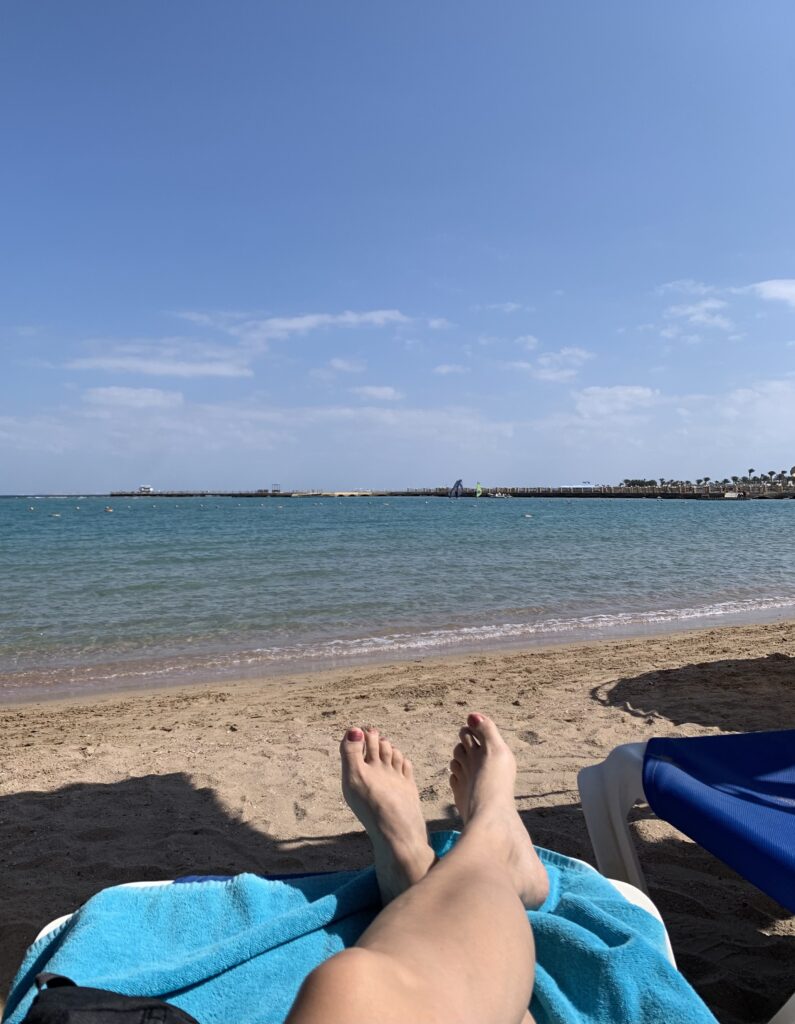Guiding our steps in the direction back to our taxi, we crossed a small square with lots of cafés. This social area was solely occupied by men, and I suddenly felt very exposed, feeling lots of gazes upon me. I instantly felt stupid, having chosen to wear a dress that ended just over the knee instead of a pair of jeans. Back at the souvenir shop, the owner tried again to lure us in, but we’d seen enough of the generic things and wanted to get back to the hotel.
On the way, the driver complained about another car’s driving. When he saw it had been a woman, he said they shouldn’t be driving anyway. I was stunned for a second and then advised him that this was a rude thing to say while having a woman in his taxi. He seemed surprised and started discussing what Egyptian women are like, in his view. In his mind, they can go to school and university if they please. Still, as soon as they marry, they prefer watching TV at home, cooking and cleaning while waiting for their husband to come home from work. I wondered if there was a strange transformation going on that I didn’t know about. After all, we had heard similar views about Egyptian women from one of the shop owners at the hotel.

The next day we relaxed at the hotel beach. One of the beauty saleswomen approached us again to check if we finally had decided to book one of their treatments. I used this opportunity to ask the young woman about her opinion on what appeared to be rather traditional role models. She confirmed that Egyptian men think of women as the lesser gender, that they should stay home and just be mothers and housekeepers. Adultery by men seemed to be common and not much frowned upon. The same behaviour was unthinkable for a woman. She shared a bit of her story with us, and we understood why this young, intelligent, pretty and industrious woman decided to be alone rather than marry an Egyptian man.
Continue to Afterthought
